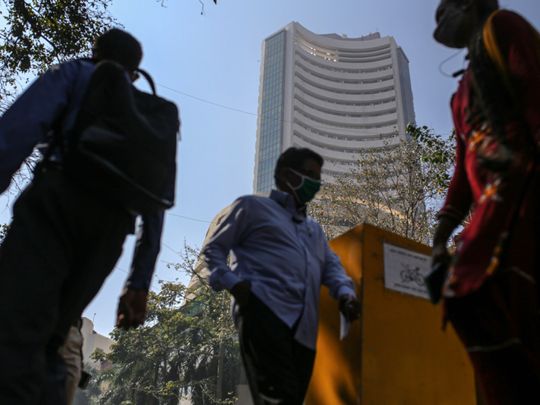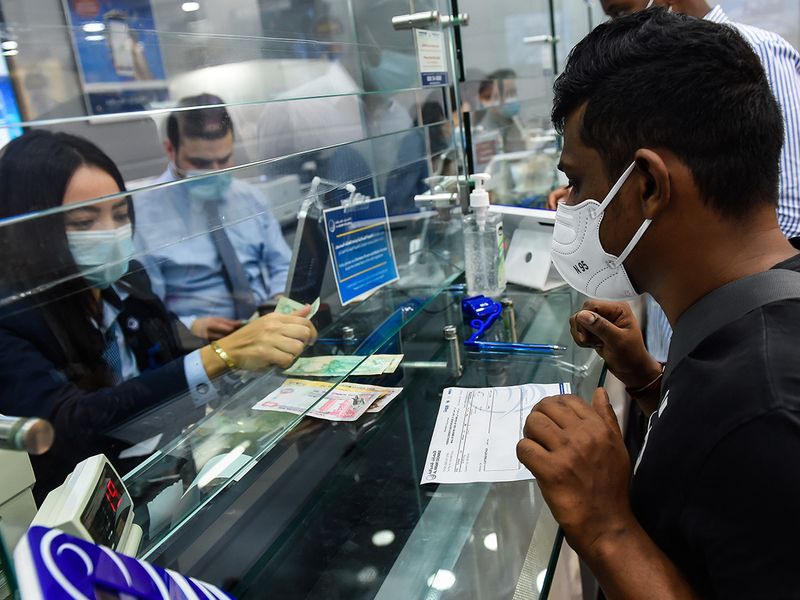
Dubai: Several Indian expats in the UAE have an earnest appeal to their government: To ease a new rule for making systematic investments back home. The reason — a new KYC (know your customer) rule introduced from January 1 has made it difficult for Indian expats who cannot produce utility bills as proof of their overseas address, to make investments in capital markets, including mutual funds, stocks, unit-linked insurance plans and so on.
According to industry experts, the Indian government has stopped accepting the details of the NRE (non resident external) account statement as proof of overseas address. NRE account is a bank account opened in India in the name of a non-resident Indian (NRIs) to park foreign earnings and shows the post box number of the company with which an NRI is employed.
As per the new Central KYC rule, any utility bill that is not more than two months old, from any service provider, is the only document that can now be produced as proof of overseas address. Electricity, telephone (landline), postpaid mobile phone, piped gas or water bills are accepted. All other valid Indian documents that can be given as proof of identity do not carry the overseas addresses of NRIs.
Halt on investments
The new rule has put a halt on new investments in capital markets by a large number of Indian expats in the UAE, said K.V. Shamsudheen, director of Barjeel Geojit Financial Services, who has been actively involved in educating the Indian expat community about financial discipline and advising them to make investments to secure their future. He said financial companies like his cannot accept applications from expats who cannot submit utility bills as proof of address.
“An immensely large group of Indian expats in the middle and lower-income groups do not have such utility bills because they live either in their company accommodations or in shared accommodations. Most of these people do not use postpaid mobile connections also. Even if they have one, it is usually under their company’s name,” Shamsudheen told Gulf News.
He pointed out that only those who have tenancy contracts or properties in their names can get utility bills in their names. “Those who are rich enough are mainly interested in making big investments in properties and banks. It is the lower and middle-income categories of people who are interested more in making investments in mutual funds and shares etc. The government is denying them the opportunity to be part of the nation-building exercise by not allowing them to make investments back home.”
Shamsudheen, who has held around 800 classes, 1,000 radio programmes and more than 800 TV shows to spread awareness about financial discipline, said he has sent a representation to India’s Minister of Finance, Nirmala Sitharaman, to address this issue and reinstate the previous system of accepting NRE account statement as the proof of overseas address for NRIs.
Hopes dashed in the New Year
Some Indian expats said they had become more conscious about making investments in mutual funds or in stocks in India in the wake of the COVID-19 pandemic and their New Year resolutions to start doing that were dashed by the new rule.
Jojo J. an operator in an aluminium production company in Dubai, said he wanted to make a systematic investment plan in mutual funds in India. “When coronavirus hit, I realised it will be difficult in future if we don’t make proper investments. Since bank deposits have lower interests, I was planning to break some of my fixed deposits and put them in mutual funds that are now offering better interest rate. I wanted to do it from this year. But, now I cannot do it as I don’t have any utility bills to prove my address in our company accommodation and I am using a prepaid mobile connection,” said Jojo.

V.R. Jayakumar, a mechanical engineering supervisor, said he had felt that he was already late in making any good investment and had decided to do it in the New Year. “I live with three other colleagues in a villa. I don’t have the utility bills in my name. All other documents have India addresses,” said Jayakumar. “I don’t understand why the current address in NRE account cannot be accepted by the government. We are getting no benefits as NRIs even though we remit all our money to India. Why can’t government address such small issues that affect our investments back home?” he asked.
The concern is about investing in a new fund for Vinod Kumar, a maintenance supervisor in a government department who has been investing Rs30,000 every month in mid-cap companies and multi-cap funds for seven years. “I have a separate room in our company’s staff accommodation. But I still don’t have tenancy contract or utility bills in my name. So I can’t invest in new funds if I want to.”
He said people like him watch news and decide on investments in stocks and funds that get them more profit. “Many people are now working from home and have more time at hand to plan such investments that give more profits than bank deposits. In seven years, I have got up to 12 per cent interest from mutual funds. In normal fixed deposits, you get up to a maximum of six per cent interest only.”
He said the government needs to promote systematic investment from NRIs and should avoid making paperwork more difficult.
Harmful for genuine investors
Other industry experts also echoed the plea raised by Shamsudheen.
Ramesh Krishnamurthy, head, MENA Region, Sundaram Asset Management Company Ltd, said he was aware of the issue and has taken up the matter with his company’s headquarters after Shamsudheen raised awareness about it.
“Every single worker, whether blue-collar or white-collar, has an NRE account statement and that becomes proof of their overseas address. That is how KYC was getting registered all these days. The new requirement of utility bills will be harmful to those who are making genuine investment. This is going to be very difficult particularly for Indians in the region where many people live in company accommodations and shared accommodations,” he added.
“I am aware that Shamsudheen has made a representation to the government on behalf of NRIs. As an asset management company, we also echo the same thoughts and views and we will also raise it with the regulators and the government,” he added.
Diverse investments
Anish Mehta, chairman of the Institute of Chartered Accountants of India in Dubai, said: “We say investment should always be diversified and the government is also making several campaigns to attract investment from NRIs. When some mutual funds help even low-income blue-collar workers to make investments as low as Rs100, the government should take proactive measures to make it easy for all categories of NRIs.”
The Indian government is vigorously inviting overseas investments from NRIs with Invest in India campaign and Aatmanirbhar Bharat (Self-Reliant India) campaign. There is another campaign named Mutual Fund Sahi Hai, a mutual fund awareness campaign run by the Association of Mutual Funds in India.
Consulate responds
Shamsudheen was called in for a meeting by the Consul General of India in Dubai, Dr Aman Puri, after the Indian Consulate in Dubai received a copy of his representation.
When contacted, the consul general told Gulf News that the consulate was examining the matter. “We will take it up with the Ministry of Finance after obtaining the views from other stakeholders in the matter,” he added.
Read more
- UAE Ministry of Interior tops in star rating
- Abdullah bin Zayed, Al Owais call Danish counterparts, affirm commitment to COVID-19 testing protocol
- Dubai Police urge public to report anyone who flouts COVID-19 safety rules
- Sheikh Mohamed bin Zayed, Indian Prime Minister Modi discuss ways to enhance bilateral ties
Though Indian passport holders can now provide their overseas addresses to be printed in their passports, they need to get a new passport for adding the local address. Proof of local address such as electricity and water bill [from Dewa/Sewa/Fewa] or rent agreement/title deed/tenancy contract are also required for the same as proof of residence in the UAE.









